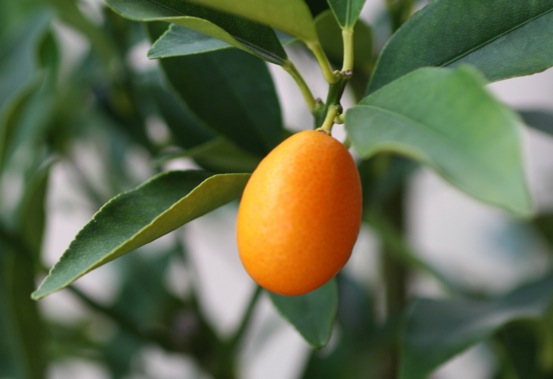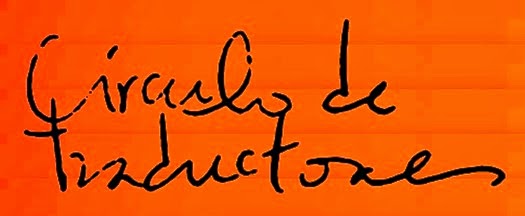The Translator’s Greenhouse
November 12, 2013
Photo by Shami Chatterjee/Flickr
Juan Gelman’s prose poems remind his translator of “eating juicy
kumquats, tart little explosions of flavor.” In her attempt to generate
versions of his poems that capture both their startling imagery and
delicious musicality, Lisa Bradford found it crucial to maintain this
conflictive pairing, often evoking a visceral response from readers.
“The translator of prose is the slave of the author, and the
translator of poetry is his rival,” wrote Vasily Zhukovsky,
nineteenth-century Russian author and translator of the English
Romantics, and although I cannot speak for all translators, I have
recently discovered that the second half of this dictum may sometimes be
true. There is, no doubt, an ethical responsibility to the originating
poet, but a seminal, loving response—“respons-ibility,” to quote Manuela
Perteghella—drives us translators to boldly and even competitively
reengender figures in our quest to produce captivating poems in English
that measure up to the original text.
As a translator of poetry, transplanted from Ohio to the Pampas, I
have often envisioned my craft as both a regeneration of delight and a
grafting of cultures. As I begin to read a poem in Spanish, I
immediately imagine the words growing in sundry colors and hear them
singing in new environs, but a piecemeal approach rarely works.
Shelley’s analogy captures the truth of the process: a translator should
not merely grind and distill a verse’s petals but rather grow a poem
from a passionate seed, as does a writer. It is a challenging and
pleasurable activity, rather like cultivating exotic plants and, as
such, as satisfying as it is frustrating. Those blooms and fruits,
moreover, now and then take on scandalous shapes, so much so that, at
the end of the season, some posies must be dismissed or pressed in
personal books. Nevertheless, I had never thought of this as a rivalry,
until just lately.
Take, for example, my most recent project, Cólera buey (1965/71;
Oxen rage), a watershed collection of poems by Argentine poet-in-exile
Juan Gelman. Known for his moving lyricism and social commentary, this
recipient of the prestigious Premio Cervantes has published twenty-plus
books of verse, the last of which, Hoy, was just released in
May of this year. Though most of these books were written during an
exile that began in 1975 with the military dictatorship of Jorge Videla
and deepened with the “disappearance” of his son in 1976, Cólera buey
came to life between Argentina and Cuba and garnered him recognition
throughout Latin America. Composed with his customary penchant
for rewriting the Argentine lyrical past and social present, this is a
diverse volume, made up of more than 150 poems divided into 11 parts,
two of which are designated as “Translations,” thus initiating Gelman’s
inspired use of pseudotranslation, “com/position” (“generative
translation”), and intertexually driven commentaries and citations, all
grounded in a conception of translation as a con/versational and
creative art form.[1]
Rife with speculation and uncertainty, this is a book of ruminations,
written in language at times unorthodox and full of quirky coinages,
often playful and paradoxical, always musical and richly imaginative.
In the pithy prose poems of my selection for World Literature Today,
Gelman dryly mulls the task of the poet in times of injustice, rage and
revolution. One reads these brief poems expecting a story and instead
discovers flashes of intense euphony and poignant irony. Seemingly
simple as regards vocabulary, they are chock-full of translation
quandaries that demand inventive and sometimes daring solutions.
Many of these prose poems remind me of eating juicy kumquats, tart
little explosions of flavor. In my attempt to generate versions that
capture both the startling imagery and delicious musicality, it became
crucial to maintain this conflictive pairing that frequently evokes
quite a visceral response from readers. For example, in “Comely
Company,” I needed to create a similar twofold zest: a seedy, sour
kumquat dipped in powdered sugar. In order to achieve his, I felt
compelled to alter the face of a bird—though not his manners—to
re-create the alluring sounds of Gelman’s expression. My first version
read:
Beautiful Company
it’s a perfectly ordinary occurrence to
have a vulture working at my guts not devouring them exactly but loving
them or rather ripping them out to bring to light my latest faces and
look at them he says look at what you’re eating beast says the beautiful
vulture [2]
The final words, “beautiful vulture,” echo each other with their long u’s,
but there is no alliteration to accompany the assonance, so the
heightened wit of the resonant “bello buitre” falls to the wayside. I
eventually came up with “comely carrion crow,” which is lyrically more
ironic, though it lost the caped villainy of the vulture. Some may
associate the vulture with devious evil because of its bald neck and
hunchback stance, more so than with the crow, but the image of a bird
pecking away at the speaker’s live intestines seemed to me more
disgusting than a vulture’s appearance. Thus, in order to re-create a
comparable chiming in the poem, the vulture became a crow, and almost
became Poe’s raven as I had at one point ended with “quoth the comely
carrion crow.” Though I liked the sound, it’s one thing to morph the
bird and another to push the lost Lenore onto the stage. In my next
version, the gnawing question regarding what the speaker is feeding on
and the revelation of his various faces are enhanced with the painful
and resounding long a’s and e’s in the words of the crow:
Comely Company
it’s a perfectly ordinary thing to have a
carrion crow working away at my guts not devouring them exactly more
like loving them or ripping them out to bring to light my latest faces
and look at them he says to me see what you’re eating beast says the
comely carrion crow
All that made for a very fresh kumquat, according to my palate, but when I received the proofs of the poems that WLT
was going to publish, there was an accompanying image of a crow, which
seemed to be scolding me for my licentious translation behavior. By the
same token, I was reminded of the thoughtful question translator Katie
Silver posed as I discussed these poems at a group session during the
Banff International Translation Center program this year: “Who are you
translating for? English readers or the author?” Quoth the raven: Who am
I performing for? Can a crow get work as a vulture? Has my greenhouse
created a mutant love-child? Or is this a co-rivalry between poets?
Fortunately, the poet—who is a translator himself—has allowed and
even encouraged me to take liberties when, for reasons of euphony or
rhythm, a more literal approach would fall flat, and though our
con/versations have been rich and invariably friendly, he will sometimes
draw a very firm line. I shot an eleventh-hour email to him, explaining
my decision and, I suppose, asking him to bless my beast. His answer
was short and tart: “Dear Lisa, it’s a vulture.” I could hardly ignore
that directive, though not a few readers had come to love this comely
carrion crow.
One of Gelman’s most famous and popular poems, “Regarding Poetry,”[3]
may shed some light on this conundrum. It begins by commenting on the
lack of readers of poetry and the lamentable status of poets to then
relay the story of an uncle, tío Juan, who sang tweet tweet till the day
he died (probably from inanition), finally turning into a little bird
that continued to chirp and chirp on its ride to the city crematorium (a
harassingly uncomfortable embarrassment to some). The final quartet
reads:
it’s lovely to know folks can tweet and tweet
in the most unusual of circumstances /
tío juan once deceased / me right now
just so you will love me.
Was my transfiguration due to rivalry? Had I been infected by
Gelman’s flare for generative translation practices? Perhaps a bit of
both. In any case, similarly lacking in readers and funds, the
translating writer must grant a poem new life by cultivating fresh and
tasty fruit, if only to receive some crumbs of love, especially from the
poem.
Mar del Plata, Argentina
[1] See my “Notes on Translating Juan Gelman’s Com/posiciones” (2013), at the Creative Literary Studio blog.
[2] Las bellas compañíases
muy común que un buitre me trabaje las entrañas no devorándolas sino
más bien amándolas o como desgarrándolas para sacar a luz mis rostros
últimos y míralos me dice mira la que te comes animal me dice el bello
buitre
[3] Click here to listen to Gelman reading the Spanish version of “Sobre la poesía.”

No hay comentarios.:
Publicar un comentario